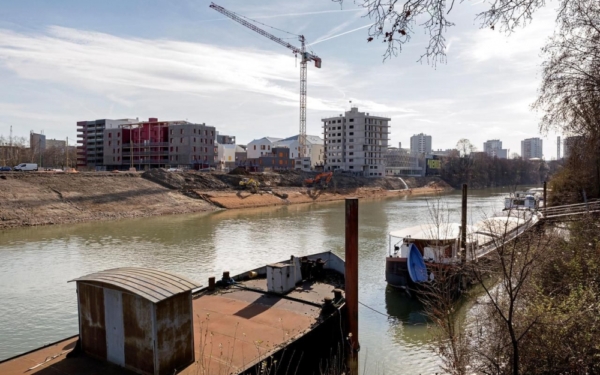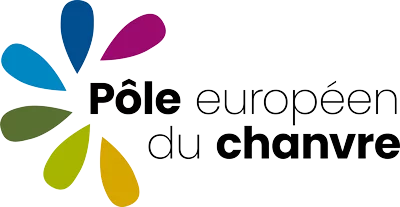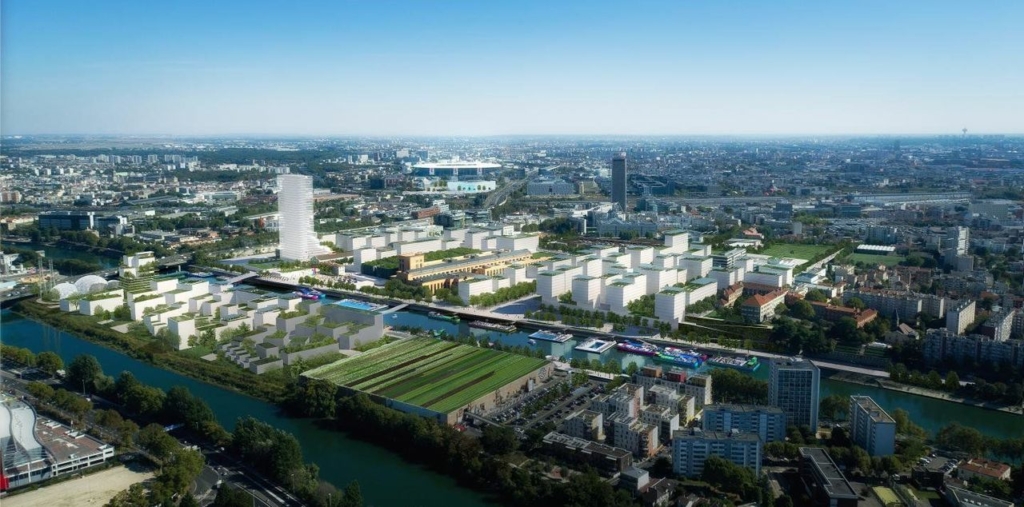France is preparing to welcome the world by hosting the Olympic and Paralympic Games in 2024. The world’s premier sporting event, which will return to France after a century’s absence, will have a major impact on urban planning and the construction of new infrastructures in the Paris region, notably the Olympic and Paralympic Village, for which the consultation process was launched today at MIPIM (the international market for real estate professionals) in Cannes.
Julien DENORMANDIE, French Minister for Urban Affairs and Housing, and Roxana MARACINEANU, French Minister for Sport, welcome the sale of state-owned land for this environmentally exemplary project.
The project, which covers the communes of Saint-Denis, Saint-Ouen-sur-Seine and Île-Saint-Denis, is unique in that it aims to enhance existing areas in order to transform them over the long term, and not just in the context of the Games. As a result, 2,200 family housing units will be built, including 25% to 40% social housing depending on the commune.
The construction of the Olympic and Paralympic Village meets a number of requirements set by the French government. In particular, it will capitalize on the expertise of French companies in environmental excellence, providing a considerable international showcase for our know-how.
For example, the wood industry, recognized as a sustainable, eco-responsible and fast-growing sector, is at the heart of the village’s construction project: the ambition is to build all buildings under 9 storeys in wood, and only beyond this limit will the structures be in concrete and partly in wood. Julien DENORMANDIE is delighted: ” The timber industry is in the process of being structured and will be ready. The French government is backing the project, with support from the Ministry of Housing and the Ministry of Agriculture and Food through the Strategic Committee for the Wood Sector. It’s not just an environmental issue, but also a social one, defining the model for the city of tomorrow. »
The French government is also encouraging project sponsors to submit CIME projects that employ innovative and environmentally ambitious techniques and products. “The use of bio-sourced materials, in particular hemp, for which the French industry is strongly structured and which offers hemp concrete solutions and insulation materials of excellent quality, or that of raw earth, must be given attention and be a factor in the final choice of the project manager,” explains the Minister.

Still on the subject of the environment, the French government hopes that CIME projects will enable the deployment of new techniques. “It was with this in mind that we launched the innovation permit,” adds Julien DENORMANDIE. « This provision of the ESSOC law encourages construction companies to innovate in their building techniques. It allows them to derogate from the very restrictive means-based objectives of the regulations, while achieving the same level of requirements in other ways. We’ve made sure they can focus on the result, not the means to get there. ».
In addition to environmental requirements, the organization of the Olympic and Paralympic Games must also be exemplary in terms of social ambitions. The consultation will include ambitious social integration clauses, with 10% of hours worked reserved for people who are far from employment, and will be supported by the 15,000 Builders scheme, which mobilizes the construction training sector for young people, particularly from our neighborhoods. Thanks to the support of the French government, this project is fully in line with the trajectory we need to chart for the future of urban planning and construction in France, and more generally in social, environmental and economic terms. “says Julien DENORMANDIE, Minister for Towns and Housing.
« The entire government is fully mobilized to make these Games an exceptional sporting success which, beyond being a unique event, will benefit all French people. The Paris 2024 Olympic and Paralympic Village will be the cornerstone of the Games, as it will welcome the world’s sporting delegations, including 15,000 athletes, to the heart of Seine-Saint-Denis. This high environmental quality housing complex will be a pillar of the material legacy of the Games, since after Paris 2024, families from all social categories will have the opportunity to settle there. On a broader scale, the entire region will benefit from this exemplary real estate project, transforming itself in a sustainable and virtuous way. “adds Roxana MARACINEANU.


